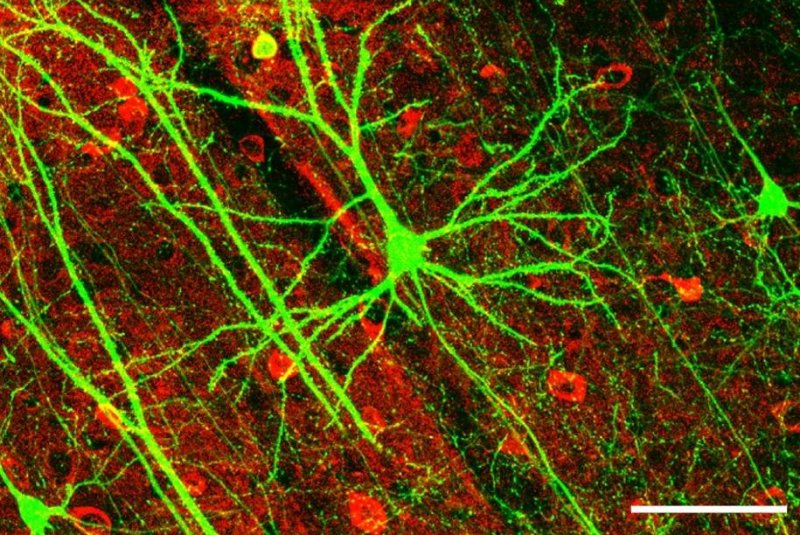CHARLESTON, S.C., Oct. 26 (UPI) -- A study led by researchers from the Medical University of South Carolina identified genetic alterations that may be responsible for the development of autism.
The research team also included scientists from Harvard Medical School and the University of Texas Southwestern Medical Center. According to the study's authors, a gene which has been linked to other brain-related disorders such as schizophrenia may be a prominent culprit in the onset of autism. Researcher Christopher Cowan says the finding may be key for developing new treatment methods.
"If we can identify the major players that cause brain development disorders, that creates therapeutic targets that pharmaceutical companies can use," Cowan said in a press release. "They are desperate for new targets."
Scientists identified the MEF2C gene, which is involved with muscle development, as a potential target for autism. The gene is highly expressed in the brain, and has been previously associated with severe neurodevelopmental disorder and intellectual disabilities.
"Like autism, schizophrenia is a neurodevelopmental disorder -- something goes wrong during brain development that gives rise to the later onset of symptoms," Cowan continued. "The link between MEF2C and neurodevelopmental disorders is not surprising -- it is enriched in parts of the developing brain important for cognition, social behaviors, sensory processing, motor control and language."
To test the link the gene and the formation of autism, the researchers removed the MEF2C from mice and observed their social behavior. The MEF2C-deficient mice showcased drastically reduced social interaction with other animals, a characteristic associated with autism. The research was published in the journal eLife.
Scientists also noted the mice demonstrated impaired language development, which was measured at ultrasonic frequencies with special microphones, in addition to a 300 percent increase in repetitive physical movement.
MEF2C is one of many genes implicated in development of autism. However, investigators believe this particular gene has a profound effect on the expression of many other genes. Cowan says his findings support the theory that autism results from impaired synapse connections formed between brain cells.
"What we found was really striking," he said. "Without MEF2C, there's a decrease in the connections that excite brain activity, and a big increase in connections that inhibit brain activity."















